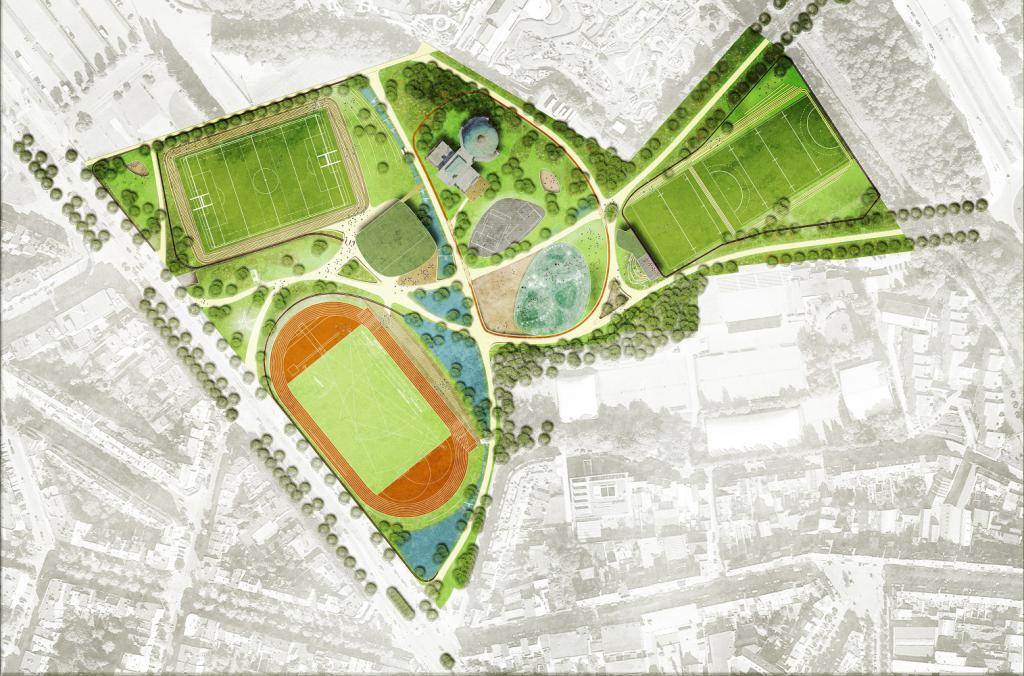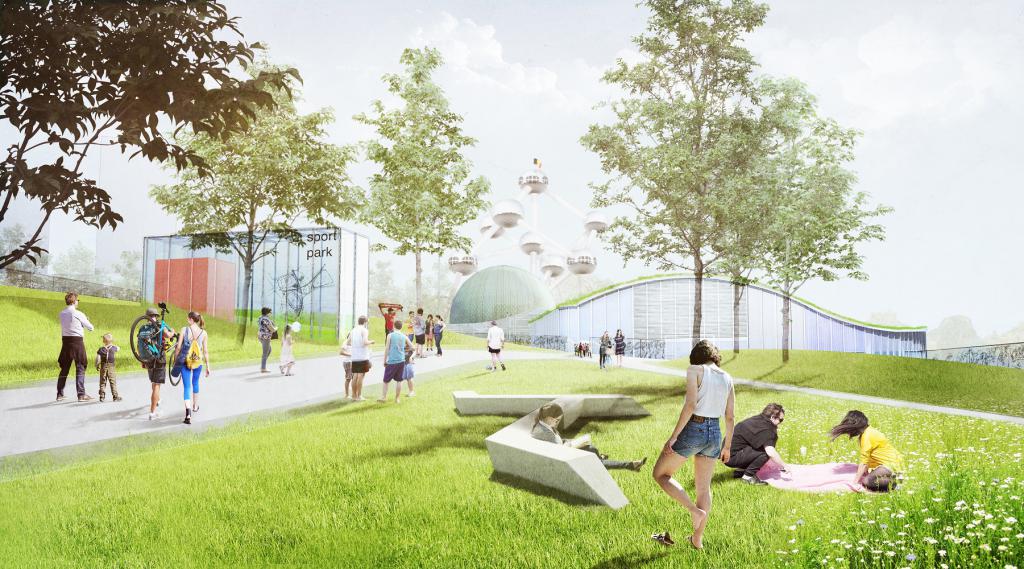Since it was first announced, the redevelopment of the Heysel plateau has been a controversial project, but one less contested aspect of the plans – a major sports park – is gaining momentum.
The City of Brussels will shortly be launching a European public procurement contract for the construction of the Sports Park planned as part of the Neo project in the north of the capital, on the Heysel Plateau near the Atomium. The project is due to be completed in 2030 and is expected to cost €50 million.
"The Sports Park project aims to offer the public a park with several major sports facilities that meet the needs and uses of the area known as the Heysel plateau," Benoit Hellings, the Brussels Councillor for Sport, told Le Soir.
This particular aspect of the project seeks to improve the existing sports infrastructure and reaffirm the sporting character of the Plateau du Heysel, which has historically always been used for sports and currently hosting two major sports clubs.
The project as it currently stands includes a one-and-a-half hockey pitch with a 2,500-seat stand, an athletics training ground with a 400 m track (500-seat stand), and a synthetic rugby/football pitch (5,000-seat stand), built in a 27-hectare green space between Avenue Houba de Strooper and Boulevard du Centenaire.

A draft of the plan for the space, shared when the project was first launched. Credit: NEO
"By reorganising the site and framing the infrastructure in a park environment, the site can become a real park in addition to sports infrastructure," the City of Brussels confirmed at the time of the project announcement. The sports facility will be tailored to both top-level athletes and local residents.
Hellings noted that this infrastructure will also make it possible to host a series of competitions that attract slightly smaller audiences than the matches played by the Belgian national football team in the Roi Baudouin stadium. "Filling 45,000 seats is not easy. Only the Diables manage it. On the other hand, our teams in the lower categories will be able to play football, rugby and hockey in the facilities."
The area will also include a clubhouse, a water recreation area, a set of water cascades leading to a basin and a 200-space underground car park.
Contested project
The announcement marks a new stage in the tumultuous Neo project on the historic Heysel site. The construction of a new district on the 70-hectare site includes a major shopping centre, housing, offices, and a conference centre, as well as the redevelopment of public spaces.
The other aspects of the project have faced several delays. The Regional Land Use Plan (PRAS), which creates the legal basis for the Neo project, that was originally proposed has been reviewed several times.
In particular, the construction of the "new mega-shopping centre" has been subjected to widespread criticism. Environmental organisations and Inter-Environnement Bruxelles (a federation of neighbourhood committees, associations, groups and residents) are opposed to its construction and have called it a "sacred monster" of modernism.
They argued at the time that the project did not meet any of the locals' needs, but instead would seriously harm the quality of life of local residents due to an "explosion" of traffic, which they added would worsen the already poor air quality.

